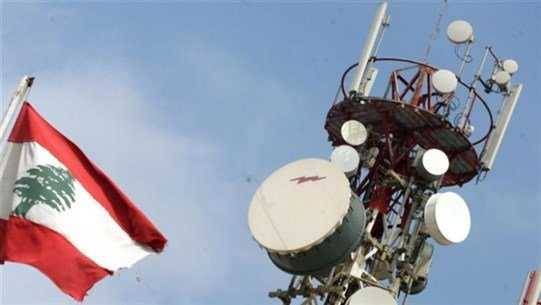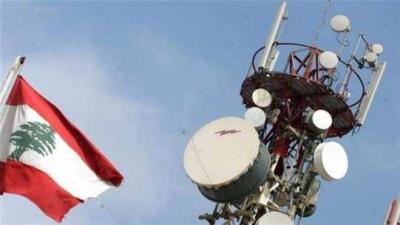Once again, the telecommunications sector is threatened with shutdown due to Ogero's inability to secure fuel for the stations. It needs an emergency treasury advance of 577 billion Lebanese pounds to pay for fuel and ensure maintenance and operational supplies. The treasury advance requires approval from the Cabinet before being referred to the Parliament. Meanwhile, the funds resulting from the tariff increase in July have not sustained their effects, especially with the dollar price exceeding 40,000 pounds in the market. Moreover, the technical efforts required to operate the network have reached their minimum level.
A few days ago, Imad Kreidieh, the Chairman and General Director of Ogero, sent a letter to the Minister of Communications and to the General Secretariat of the Parliament, the General Secretariat of the Cabinet, the Court of Accounts, and the Central Inspection, informing them that there is a possibility of forced shutdown in the telecommunications sector due to a lack of funds. There are about 303 centers that need 70 kiloliters of fuel daily. The price of fuel has increased from an average of 360,000 pounds at the beginning of this year to 910,000 pounds in November. The authority no longer has enough funds to purchase fuel, especially since previous advances have already been deducted from its budgets. This funding shortfall has severely affected the company, leading to delays in maintenance work and causing it to fall behind in paying due bills to external suppliers. Despite the tariff increase in July, the operational costs of the sector have consumed all the approved allocations, prompting Kreidieh to suggest that the tariff should be adjusted and linked to the dollar.
This reflects the current situation in the sector, according to "Al-Akhbar." There are seven major problems that have significantly paralyzed Ogero. The authority has not been able to maintain the pathways, telephone rooms, or damaged wooden poles, nor to replace stolen or broken room covers. This impacts service quality and poses a public safety risk, as well as creating obstacles for maintenance teams. The difference between the estimated cost of upgrading buildings and the current exchange rate has prevented Ogero from adhering to the pre-planned rehabilitation program with the Ministry of Communications, as the amount allocated for upgrading a building is no longer sufficient even for part of it. Additionally, elevators in telecommunications centers are now without maintenance contracts, posing risks for workers and visitors.
Furthermore, the authority has had to amend the electricity generators supply contract and reduce the number of new generators required due to the exchange rate difference. Ogero has managed, with its own capabilities, to rehabilitate some generators that were out of service by operators from the two cellular companies in warehouses in the Dekweneh area.
The efforts to put the network into service extend beyond just fuel; it requires expert input and technical, administrative efforts to upgrade, expand, maintain, and operate the local phone network, data transmission, and exchange network, as well as local wireless phone networks and international internet gateways. However, the authority has been unable to purchase "Nokia Network Switch cards 10gb" due to the lack of necessary allocations at the parallel exchange rate, preventing it from deploying the "OTN Optical Transmission Network." It has also failed to proceed with support contracts for several components of the phone and data exchange networks, leaving these systems without technical support from the manufacturer or its representatives in Lebanon. Additionally, the authority defaulted on its obligations under contracts with global companies due to the Central Bank of Lebanon ceasing to transfer any amounts outside the country.
While the situation seems increasingly dire, there is a noticeable gap in the authority's staff, with many experts and skilled labor leaving Lebanon in search of better salaries in neighboring countries, negatively affecting performance efficacy in several technical and operational sectors.
Given this situation, Kreidieh has called for an emergency Cabinet meeting, warning that the shutdown of telecommunications services would harm the state’s interests. Therefore, it is essential that reducing the government's powers and restricting them to a narrow scope does not harm state interests by paralyzing institutional operations and jeopardizing the continuity of public services, including telecommunications. Thus, he requests that his letter lead to a Cabinet session to study and approve the following:
- Reassess the current tariffs for services provided by the Ministry of Communications and link them to the US dollar to ensure that revenues match the operational and developmental costs of the sector.
- Consider approving an emergency treasury advance of 577 billion pounds to pay for fuel and maintenance and operational supplies.
- Consider repaying previous treasury advances from the general reserve of the public budgets without affecting the main allocations stated in the budget laws.
- Request the Electricité du Liban to consider the technical feasibility of connecting all telephone centers to 24/24 power supply lines.
- Review the approval of disbursing the authority's budget credits for the year 2022, for both the construction and equipment (CAPEX) and maintenance and operation (OPEX) in cash US dollars at the Sayrafa platform rate, to secure spare parts and network supplies necessary for the copper and fiber optic networks and to fund the procurement of endpoint devices needed to complete the digital transformation plan for telephone exchanges to reduce energy consumption and improve service levels.




